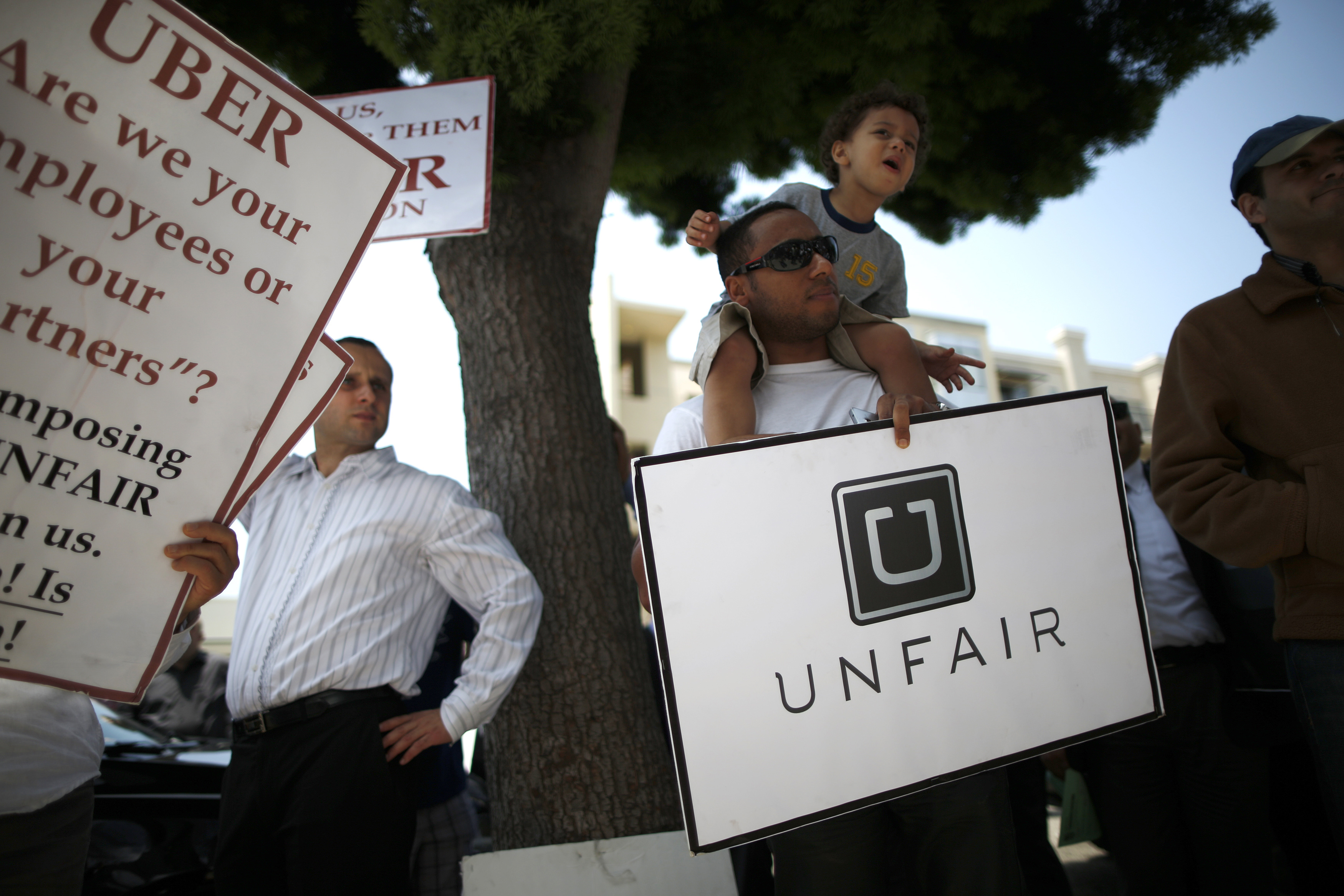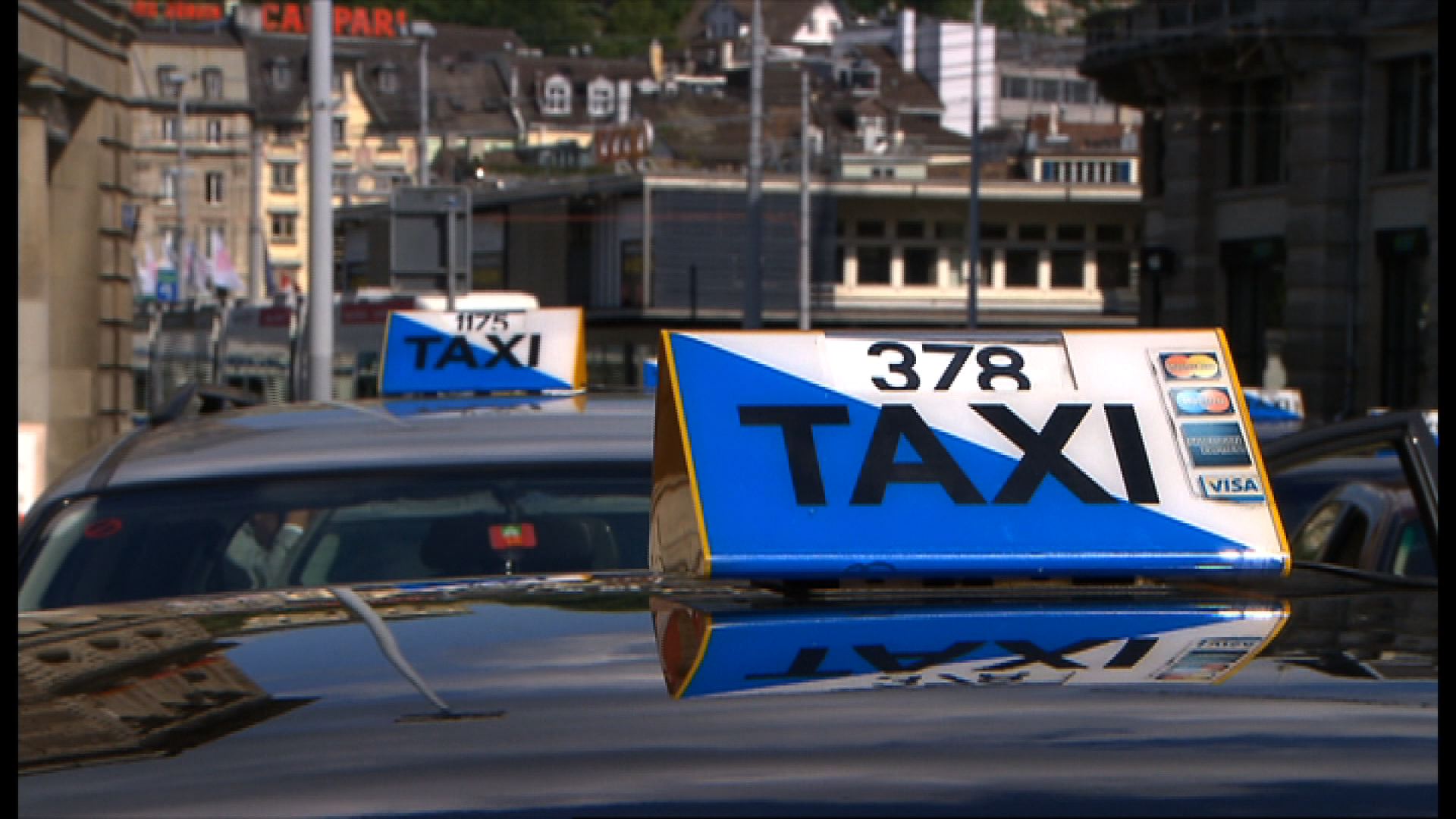Uber bulldozes through regulatory blockades

The US taxi hailing service has so far ignored attempts by Germany to ban its presence, as it continues its aggressive march across Europe.
Uber’s response to being banned in Germany, the first time it has been told to stop operating across an entire country, has been to follow the same approach it has had to regulatory hurdles elsewhere: drive straight through.
Tuesday it was revealed that the taxi service had been prohibited from operating Uber Pop, its lowest cost offering, in Europe’s biggest market. The San Francisco-based company faces fines of up to €250,000 (CHF302,000) per trip if it violates a temporary injunction imposed last week after Taxi Deutschland, the industry association, took it to court for non-compliance of German transport law.
Although the judgment declared that Uber was required to cease operating immediately, the company has said it will continue to operate while it appeals. Anja Floetenmeyer, a spokeswoman for Taxi Deutschland, the trade association of Germany’s drivers which brought the court case, intended to seek fines against Uber for continuing to operate the service. “We didn’t expect anything else,” she said. “Uber has never observed German law. This is Wild West capitalism without consumer rights.”
The skirmish is the latest front in a battle that Uber is facing across the world, particularly in Europe, where regulatory authorities have often taken an especially robust approach to the practices of some of Silicon Valley’s biggest companies, including Google and Microsoft. Uber could be following in their footsteps: it raised $1.2 billion this summer, valuing the company at $17 billion, to fuel a global landgrab that has seen it expand to 200 cities since it was launched in 2009.
Uber works by allowing customers to order and pay for a car via a smartphone app. It claims to be quicker and faster than traditional taxis and promotes itself as a consumer-friendly disrupter of an industry that is closed to innovation, dominated by vested interests and anti-consumer. Travis Kalanick, the company’s chief executive and co-founder, told a conference in California: “We’re in this political campaign, and the candidate is Uber and the opponent is an asshole named Taxi.”

More
Uber in Zurich: a case of unfair competition?
But the start-up has also been criticised for taking such an aggressive approach against anyone it sees as an opponent, whether it is lawmakers, rival taxi apps or transport unions. Some of its business practices have also generated ill-will and an increasingly tough response.

More
Financial Times
External linkIn response to its decision to continue operating despite the injunction in Germany, for example, Ms Floetenmeyer plans is to use the app to gather evidence against it. “We are carrying out ‘test drives’ of Uber Pop, and then reviewing the vehicles with the authorities to see whether they are licensed vehicles,” she said. “If we find an Uber Pop driver driving without licensing we will document that and put it before the court.”
Uber can hardly complain: it has used similar methods to poach drivers from its US competitors, such as Lyft. Huge “street teams” of Uber recruiters, armed with disposable mobile phones and company credit cards, hail drivers working for Lyft, then offer them incentives to switch, according to documents leaked to the Verge tech news site last week and confirmed by Uber. “We’re aggressive about showing drivers they can make more money on Uber than other platforms, but fair in how we do it,” tweeted Ryan Graves, Uber’s head of global operations, last week.
But after a series of city-by-city battles, the countrywide ban marks an escalation in Uber’s war with regulators and a new test of its cut-throat approach. City authorities had attempted to ban the company in Berlin and Brussels, and it is opposed by taxi drivers’ unions in Britain, Italy, France, Spain and Germany. Its response in each has been robust: it has continued to operate in each of these territories. In only a few cases, such as New Orleans, has Uber chosen not to operate as the result of a ban being imposed by local authorities.
But the company’s bombastic strategy may be about to change. Last month, it announced the hiring of David Plouffe, one of US President Barack Obama’s key election advisers, to take charge of policy and strategy.
While Mr Plouffe’s move from Washington DC to Silicon Valley presents the opportunity for Uber to take a more nuanced approach to regulation, his first comments showed no sign that he would tone down Mr Kalanick’s bombastic rhetoric. In a blog post, Mr Plouffe styled the taxi industry’s “cartel” as taking an “unwinnable” approach that stood in the way of the inevitable march of technological progress.
In Germany, Uber’s opponents also argue that the company is far from a typical start-up. With its ample financial backing, including from Google, the company has the legal resources to contest court rulings, and its opponents think twice about enforcing injunctions because of the risk that they will be liable for Uber’s lost earnings if an injunction is overturned.
So far, Uber has successfully dodged each legal obstacle in the country. An interim injunction won by a Berlin taxi operator in April was not enforced, as the taxi operator feared being responsible for potential costs. The ban imposed by Berlin’s city government is not yet in force. Last week, a court in Hamburg overturned a ban on Uber in Germany’s second-biggest city.
Few reflect the conflict between seeing Uber as an upstart tech company and would-be destroyer of competition than Neelie Kroes, vice-president of the European Commission and head of its digital agenda. She has been a strong supporter for the continent’s “right to be forgotten” ruling, which allows Google users the right to request that sensitive information be removed from search queries, but she has also criticised the German court’s decision regarding Uber. “We cannot simply block new business models and opportunities in Europe. Of course there should be clear consumer protection, but consumers want convenience as well as protection,” she said.
“This is not about one company. This debate is about whether Europe will dare to be open to the opportunities of technology and future.”
Nimble operator’s greatest enemy: the indecisive lawmaker
Uber’s biggest enemy is ambiguity. The epitome of a decisive and fast-moving company, Uber says city authorities fall into one of three categories when it comes to regulating driver-hailing apps and ride-sharing services, writes Tim Bradshaw.
First are those such as New York and London where the rules of the road are strict and clear, with little tolerance for those who break them. There, Uber works with regulators to gain the necessary clearance for its services and lobbies to change any rules that prevent it from launching. Second are those cities such as San Francisco that pass new laws embracing the innovation of ride-sharing, whereby anybody who passes a background check can become a driver for Uber X or rivals such as Lyft.
Uber may not always be happy with requirements such as a minimum insurance cover for their drivers, who they do not directly employ, but it puts up with them in exchange for legal clarity. Germany has this week provided the latest example of its third and most challenging category: indecisive regulators. In cities such as Paris and Berlin, or previously Dallas and Boston in the US, the absence of any rules governing taxis and ride-sharing gives Uber the opportunity to launch its services.
Governments, often caught asleep at the wheel when Uber suddenly arrives, usually tolerate the service operating in a legal grey area as long as it remains safe and popular with consumers. But taxi driver unions’ lobbying often leads to a U-turn from governments, who then begin to craft new laws or turn existing legislation into an Uber roadblock. While it locks horns with lawmakers, Uber’s typical response is to continue operating and rely on the difficulty of enforcing any ban. As it said in response to the German ban yesterday: “You can’t put the brakes on progress.”
Copyright The Financial Times Limited 2014

In compliance with the JTI standards
More: SWI swissinfo.ch certified by the Journalism Trust Initiative







You can find an overview of ongoing debates with our journalists here . Please join us!
If you want to start a conversation about a topic raised in this article or want to report factual errors, email us at english@swissinfo.ch.